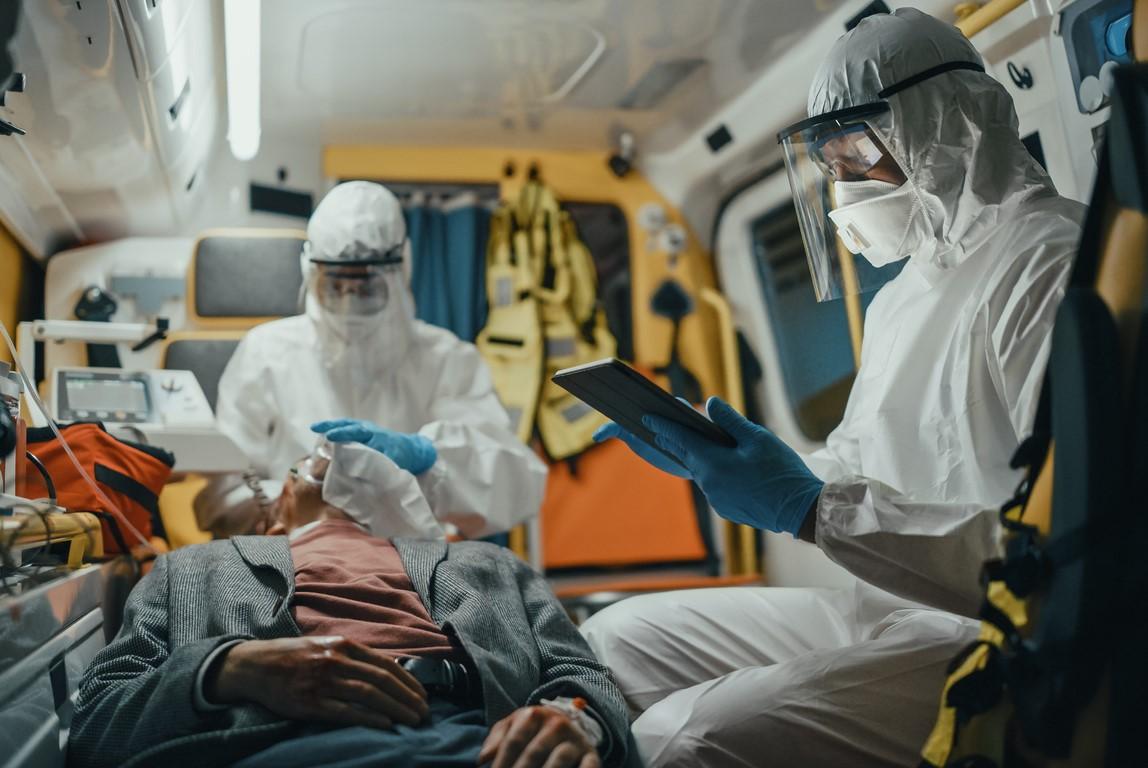Two-plus years into the pandemic, an online survey of emergency-medicine professionals in 89 countries reveals that 62% reported one or more symptoms of COVID-19–related burnout syndrome, and 31% reported two.
In a study published today in the European Journal of Emergency Medicine, the European Society for Emergency Medicine (EUSEM) surveyed 1,925 emergency-medicine physicians (84%), nurses (12%), and paramedics (2%) in January and February 2022.
Sixty-two percent of all responders reported burnout, with high levels of depersonalization (47%) and emotional exhaustion (46%), but they also reported feelings of personal accomplishment (48%). Women reported more burnout than men (64% vs 59%), as did nurses versus doctors (73% vs 60%).
Younger professionals with less work experience reported more burnout, with 74% of those with less than 5 years in the field expressing distress, compared with 60% of those with 10 years of experience. High levels of burnout were tied to frequent understaffing (70% vs 37% of those with adequate staffing) and a higher risk of wanting to leave their workplace (87% vs 40% of those who didn't want to leave). Only 41% of respondents said they had access to support programs.
The study authors said that the COVID-19 pandemic has exacerbated long-term problems with understaffing, limited resources, hospital overcrowding, and lack of recognition. And it has led to fear of infection and the need to frequently don and doff personal protective equipment.
Need for professional support
"The level of burnout found means that these healthcare workers deserve professional clinical evaluation and support," EUSEM President Abdo Khoury, MD, of Besancon University Hospital in France, who was not a study author, said in a EUSEM news release. "Worryingly, less than half of responders to the survey (41.4%) reported having access to such psychological support, either face to face or at a distance."
Burned-out healthcare professionals may turn to alcohol and drugs or develop posttraumatic stress disorder and are susceptible to suicide, Khoury said. He added that an exodus of large numbers of these essential workers will lead to even more understaffing, worsening the situation for those remaining in the field.
"An EM [emergency medicine] worker who is overworked under stress will have a negative effect on patients too," he said. "Burnout can show itself in a distant or indifferent attitude to work, as well as reducing productivity and efficiency. It can lead to lower-quality care and an increase in medical errors."
In an editorial in the same journal, Khoury writes, "The need to wear personal protective equipment and the resulting fear of being infected themselves has been a supplementary burden that may still be insufficiently recognised."
He concludes, "We still have no idea whether we are seeing the beginning of the end of the pandemic, or just a temporary lull. But whatever happens next, one thing is quite clear: EM specialists have shouldered a particularly heavy burden and are suffering as a result. Urgent measures to reduce burnout and, therefore, to encourage those thinking of leaving the profession to reconsider are needed."




















